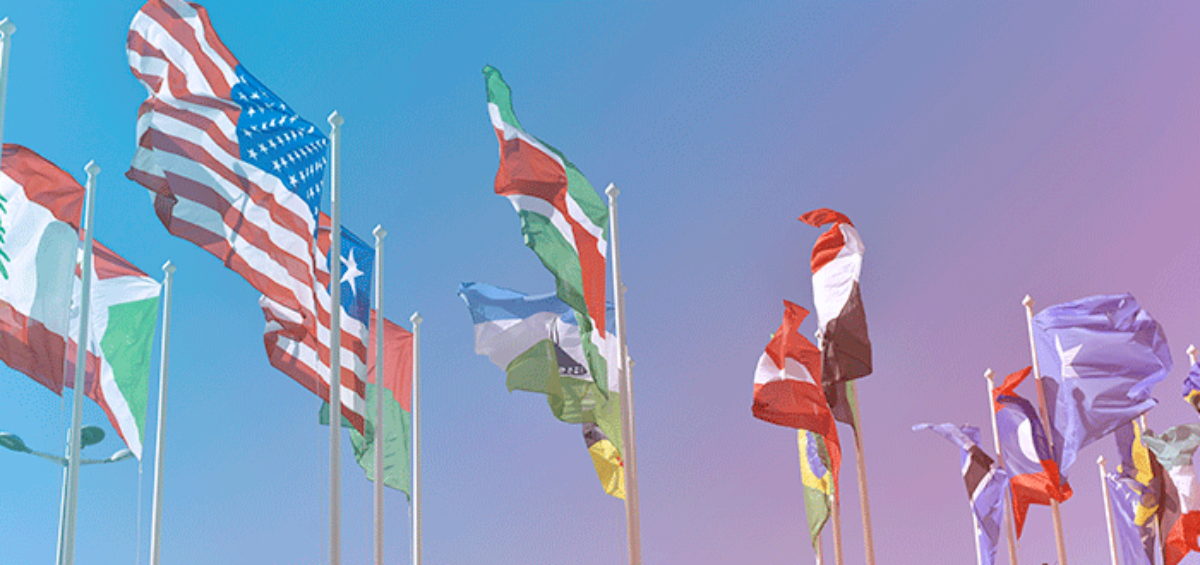As corporate leaders look at the business travel landscape, geopolitics and risk management are among the most pressing issues. What does the future hold for geopolitics and world travel? And specifically, how will geopolitics affect travel risk management?
The travel industry has been through a lot in the past 18 months, dealing with a pandemic and the semi-closure of international travel. Though the pandemic is starting to recede, geopolitics and risk management are highly relevant considerations that together have the potential to further disrupt the industry.
According to the most recent Business Travel News State of the Industry Report, 60% of Travel Managers indicate that geopolitical issues are their greatest concern. What types of geopolitical issues should companies be most concerned about? Here’s a rundown of the most pressing concerns.

1. International Relations
According to McIndoe Risk Advisory President Bruce McIndoe, the world is starting to divide into two teams — Team China and Team Everyone Else. This division could make business travel between the two spheres difficult.
We’ve already seen how international relations can affect the travel industry and the global economy at large. Trade issues between China and the United States damaged hotel and airline business in the second half of 2019. Also, China’s growing influence in Hong Kong and the resulting protests impacted a thriving events and meetings business there.
If you’re an Executive depending on business in China or in countries aligned with China, keep an eye on how these fractured relationships develop. If relations between China and the United States improve, travel patterns are likely to remain stable. But, if relations continue to deteriorate, access to China and countries aligned with China may be limited to travelers from the United States and other countries aligned with the U.S.
2. Protests
We’ve already mentioned protests in Hong Kong curtailing the events and meetings industry there. But East Asia isn’t the only part of the world where protests have curtailed business travel.
For example, yellow-vest protests in France shut down the Metro and forced Air France, British Airways and others to cancel flights. It’s difficult to predict where and when protests will occur, and it’s even harder to predict the scale of a protest and whether or not it will affect travel. The uncertainty around global protests could make travel disruptions a more common occurrence in 2021 and beyond.

3. Elections
Healix International issued travel advisories leading up to the presidential election in the United States in November 2020. The advisory asked Travelers to “avoid protest hot points” and “plan contingency routes.” Demonstrators in Texas and New Jersey shut down major highways the weekend before the election, making real the scenario that Healix had advised was possible.
The election is over in the U.S., but democracies around the world will head to polling places later this year. Elections are scheduled in Argentina, Chile, Germany, Hong Kong, Japan and Norway, among other nations. While these elections could be orderly and calm, we live in a time when any election can become volatile. Take extra care when traveling later this year leading up to elections in any of these countries.

4. Tax Obligations
Countries around the world, especially in Europe, are beginning to emphasize the importance of tax enforcement on international workers. The tax obligations for major corporations that operate internationally could significantly increase due to enhanced enforcement.
Concur, Deloitte, EY and others are starting to track the exact numbers of days that employees spend working in foreign countries. These tracking programs are designed to limit time spent working in foreign countries to avoid paying more in taxes — or to better account for time spent working in foreign countries to pay the appropriate taxes and avoid fines.
What Does This Mean for Travel Risk Management?
Travel risk management is now a concern for all Executives in the wake of COVID-19 and the need to keep Travelers healthy and safe. How should Executives account for geopolitical considerations related to travel risk management moving forward?
First and foremost, stay up to date regarding the geopolitical climate in countries where you do business. When in doubt about the safety of your workers, choose to cancel travel arrangements. Second, rely on your travel management company’s risk management services. At JTB Business Travel, we offer a comprehensive risk management solution that is designed to keep Executives informed and Travelers safe.
Contact us to learn more about our risk mitigation services.














Leave a Comment